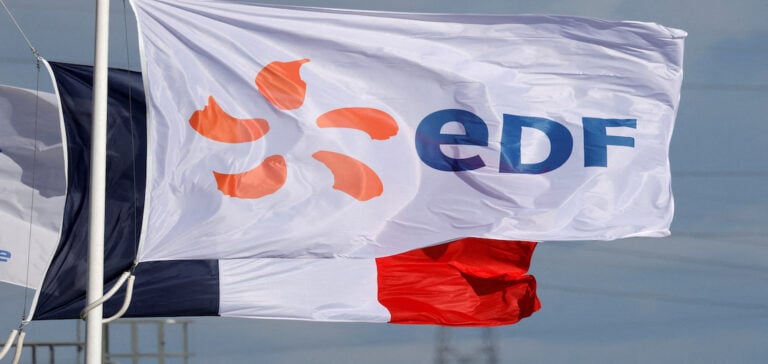EDF will have to boost its investments to 25 billion euros a year, a level “unprecedented” in its history, said CEO Luc Rémont on Wednesday at a hearing in the French National Assembly on the financing of the new nuclear fleet.
Nuclear power on the boil: EDF on the attack for colossal new investments
“We need to move to a level of investment on the order of 25 billion euros a year across the EDF Group, 80% of which will rapidly be concentrated in France,” said the CEO, appearing before members of the French Economic Affairs Committee.
For the executive, this amount is “out of all proportion to what the Group has experienced in the past”. According to Luc Rémont, this is the level of investment required to meet the group’s many industrial challenges, starting with the construction of 6 to 14 new EPR2-type nuclear reactors and extending the life of the 56 existing reactors built between 1975 and 1995, according to the roadmap set out by the government.
By way of comparison, by 2022, the Group’s capital expenditure will have reached 16.39 billion euros. The government is betting on a rapid revival of nuclear power, as well as accelerating the pace of renewable energies to move away from fossil fuels, which will result in an explosion in electricity demand.
EDF’s financial challenges: colossal investments and consensus on electricity prices
“Never in history has the EDF Group had to invest so much in so many areas,” insisted Luc Rémont, whose group is approaching this investment wall weighed down by immense financial difficulties. “We’re starting down this steep path towards greater investment in electrification, with the somewhat heavy rucksack of a 65 billion euro debt” in 2022, stressed the head of the group, which was 100% renationalized on June 8.
The CEO once again called for long-term contracts as the foundation of his business model, after the Arenh mechanism expires on January 1, 2025. This mechanism, imposed by Brussels in order to comply with European competition rules, obliges the incumbent operator to sell a certain volume of electricity to its alternative supplier competitors at a price of 42 euros per megawatt-hour (MWh), a price that “undercompensates the company”, according to a statement made by the company’s CEO in the autumn.
“To tackle (this) investment phase (…), it is essential that we work towards a new national consensus on what the price of electricity is (…) without which, of course, EDF will not be in a position to release the resources needed to ensure its own continuity of operation”, said Luc Rémont.
Financing the new nuclear fleet: EDF calls on the French government for help and awaits financing details
He also stressed that EDF alone would not be able to assume the burden of the expected investments, while the cost of the first six EPR2s is estimated by the government at 51.7 billion euros. “EDF is going to need some form of government aid to complete the financing of this project,” stressed the executive. This could take the form of “guarantees on the terms and conditions of electricity sales” or “repayable advances”.
Economy Minister Bruno Le Maire, who appeared before the same committee last week, said that the financing arrangements for the new nuclear fleet, which also depend on forthcoming EU decisions, should be clarified by the end of 2024.






















